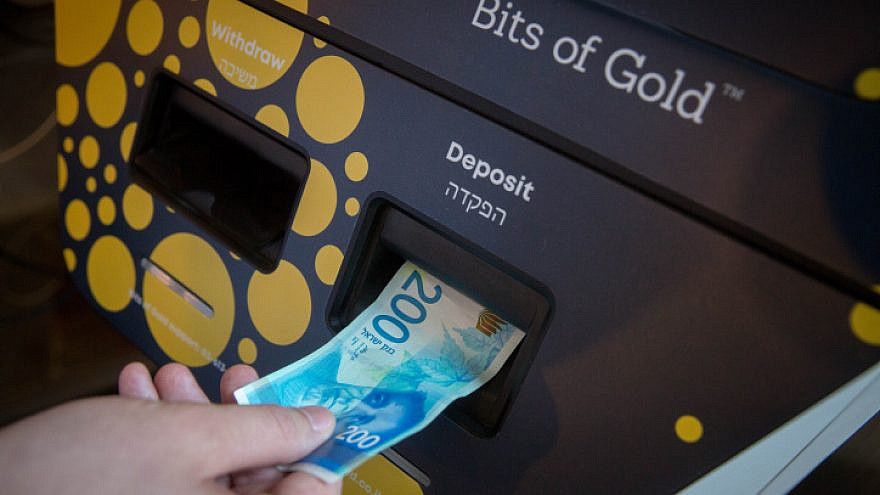You’ve heard about the guy who killed his parents and then wailed about being an orphan, right? Well, what’s going on in Israel right now is even more astounding, with the anti-government protest movement taking the metaphor to a whole new level.
Its masterminds—along with gullible, genuinely scared fellow travelers—are not only premeditating the demise of the very institutions they’re claiming to cherish. They’re staging mass dress rehearsals, replete with costumes from the TV series “The Handmaid’s Tale,” for an I-told-you-so funeral of their own making.
“The protest is progressing on several axes,” he tweeted on March 6. “The central axis is the Saturday-night demonstrations. The sub-axis is the ‘days of disruption’ and daily demonstrations. The second axis is the crushing of the economy. The third axis is the crushing of the [Israel Defense Forces] reserves. The fourth axis and the one that will deal the knockout blow is international isolation from democratic countries in general and European Union and United States sanctions in particular! Together we will win!”
Under this manifesto is a photo of a giant banner reading: “The government of the destruction of the Third Temple.” This is intentional projection—with the cynical abuse by secularists of ancient Jewish history to engage in it—at its finest.
Nevertheless, he’s among many prominent protesters who react almost gleefully with every hint of an imminent drop in Israel’s good credit rating. The March 7 Moody’s report, for instance, elicited much excitement in “resistance” circles for providing a baseless assessment of the potential long-term consequences of judicial reform on investment in Israeli technology.
Now, as it happens, Binyamin is a member of the Startup Nation’s hi-tech sector, a small percentage of whose unicorns have been taking advantage of their nearly godlike status and clout to abet the attempt to cause the country financial ruin. Their method has been to threaten, and in some cases act, to remove their millions and billions from Israel.
Take Eynat Guez, for example. Several weeks ago, the CEO of the payroll platform Papaya Global announced that she’d be doing just that, in response to Netanyahu’s “determination to enact reforms that will harm democracy and the economy.”
Other than spewing doomsday predictions, she didn’t specify how restoring the balance of power between the self-appointed judiciary and elected legislature would have such a disastrous effect. Indeed, her vague explanation was that “in the emerging reform, there is no certainty that we can conduct international economic activity from Israel.”
What she and her breast-beating industry compatriots ought to know is that the Supreme Court’s outrageous intervention in business contracts has made it more, not less, difficult for investors. They’re certainly aware that fear of disaster is a key factor in market downturns.
Realizing that their own hyperbolic warnings were liable to become self-fulfilling prophecies, they figured they’d better protect their own money, while assuming some phony moral high ground. Oh, and while ignoring the damage they’d be doing to hard-working wage earners with no spare shekels whatsoever, let alone oodles in need of safeguarding abroad.
The sick joke turned out to be on Guez and her peers, however, when Silicon Valley Bank (SVB)—where many paragons of anti-judicial-reform virtue signaling placed their cash—collapsed on Friday, and Signature Bank followed suit. Interesting that while it was busy sounding alarm bells about Israel, Moody’s failed to anticipate this actual catastrophe in America.
As New York University adjunct professor of law Max Raskin, a fellow at the school’s Institute for Judicial Administration, pointed out on Monday in a superb piece in The Wall Street Journal: “Moody’s has no expertise in complex constitutional questions and it seems to have enough trouble predicting the stability of private institutions. The company gave Silicon Valley Bank an A1 long-term local-currency bank-deposit rating up until the day that it collapsed. Moody’s also gave high credit ratings to what turned out to be subprime mortgages in the leadup to the 2008 financial crisis.”
In other words, its reliability is dubious, at best. According to Raskin, statements by Moody’s—like those emanating of late from Fitch Ratings and S&P about how judicial reforms endanger Israel’s relatively high credit rating—“are part of a troubling trend of supposedly neutral experts weighing in on matters they have neither the expertise nor the authority to evaluate.”
But these experts sure do have political positions. And as long as these tilt in the desired direction, Israel’s protest movement will continue to hail them as facts—publicly, at least.
In private, perhaps, not so much. People’s wealth is at stake, after all.
It’s no wonder, then, that Guez changed her tune. “Discount Bank and Bank Hapoalim are taking amazing steps in supporting Israeli companies,” she tweeted on Saturday. “Immediate loans to companies alongside bridge loans to employees whose wages will be delayed due to the collapse of SVB. This is what real leadership looks like. Thank you for the example and the [initiative]!”
Amusing rhetorical about-faces aside, the Soviet-reminiscent propaganda that Israel is on a path to dictatorship is no laughing matter. And the recruitment of foreign governments in the effort to foment civil war is not simply treasonous; it strengthens the resolve of those external enemies bent on annihilating the Jewish state.
The good news is that Israel, like its economy, is in better shape than its foes at home and abroad would have the world believe. Supporters of the government and the crucial reforms it’s implementing will not allow the protesters to “kill” the country and bemoan their “orphanhood.”
Ruthie Blum is a Tel Aviv-based columnist and commentator. She writes and lectures on Israeli politics and culture, as well as on U.S.-Israel relations. The winner of the Louis Rappaport award for excellence in commentary, she is the author of the book “To Hell in a Handbasket: Carter, Obama, and the ‘Arab Spring.’”


























